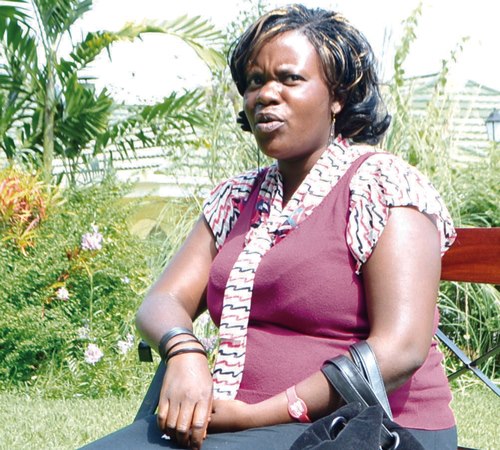A Lilongwe based woman has come into the open and declared that she is lesbian.
Mercy Kumwenda, a health medical carer for the Centre for the Development of People (Cedep) responsible for Lilongwe district, made the disclosure on the sidelines of a post 2015 Millennium Development Goals (MDGs) National Consultative meeting organised by Oxfam.
Kumwenda, 23, said like all other lesbians, she is a normal human being deserving respect and not a target for ridicule.
“I am a lesbian and trust me I don’t do this because I want to make money. I am in a stable relationship. You need to know that these things are real. I know many others who choose not to come out because they are afraid of the society’s reaction,” Kumwenda said.
However, she said she had decided to come out in the open as the first step to getting society to accept that they exist and understand that lesbians will always be part of society.
She said she discovered she is lesbian from the time she entered standard eight and said had her first relationship with her closest friend.
She said she is still in that relationship to this day although they are yet to decide on marriage.
Kumwenda said she has only disclosed that she is lesbian to her employers.
She said a lot of lesbians in Malawi cannot come out because of how the society perceives them even on the slightest suspicion of their being what they are.
“We have to come out because if we don’t, how will government and other institutions going to help us? We want to be protected. That can only be achieved if the forthcoming MDGs incorporate our issues as well,” she said.
She further said it was important for the forthcoming development goals to incorporate issues that are going to liberate lesbians or homosexuals in general from problems they face in the society such as discrimination and access to health services.
“Lesbianism is not something people copied from the western countries. It has been amidst us for a long time,” said Kumwenda, observing that this was why there is a local reference to such practice called ‘mathanyula’.
The debate of homosexuality in the country gained momentum during the late president Bingu wa Mutharika administration when Tiwonge Chimbalanga and Steven Monjeza became the first gay couple in Malawi to hold a public engagement in Blantyre in December 2009.
They were jailed by the courts, but Mutharika pardoned them in 2010 following pressure from United Nations Secretary General Ban Ki Moon and other western governments and human rights activists.
Currently, there have been observable inconsistencies by the incumbent government of Joyce Banda on the issue of homosexuality.
During her State of the Nation address in May 2012, President Banda said she would repeal the anti-homosexuality laws.
But a few months down the line, she told the Western press that Malawi was not ready to repeal anti-homosexuality laws, as a result of her fear that pushing such an agenda would have ramifications to her political career.
Today, her government insists it will leave it to Malawians to debate the matter. Meanwhile, the gay community is pushing for repealing of the law and they base their argument on Chapter IV Section 20 of the Constitution which says: “Discrimination of persons in any form is prohibited and all persons are, under any law, guaranteed equal and effective protection against discrimination on grounds of race, colour, sex, language, religion, political or other opinion, nationality, ethnic or social origin, disability, property, birth or other status.”


No comments! Be the first commenter?